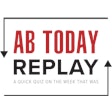|
Copyright 2013 The Durham Herald Co. All Rights Reserved The Herald-Sun (Durham, N.C.) |
|
September 4, 2013 Wednesday
|
|
LOCAL NEWS; A; Pg. 1
|
|
1034 words
|
| Report on academic, athletic balance at UNC calls for reform |
|
Gregory Childress [email protected]; 919-419-6645
|
|
CHAPEL HILL - A much-anticipated report on the role of college athletics at UNC makes 28 recommendations its authors believe will help UNC better balance academic and athletics. The report calls for reforms in oversight and management, greater financial transparency, spending caps for some sports teams, a mandatory education program for coaches and a "year of readiness" for athletes admitted to the university under special conditions, among others. The report was commissioned by former Chancellor Holden Thorp, who left the university in July after two tumultuous years dealing with academic and athletics scandals. While many of the recommendations of the Panel on Intercollegiate Athletics at the University of North Carolina at Chapel Hill were written for UNC, the hope is that other universities across the nation will also join the conversation to reform college athletics. Hunter Rawlings, the Association of American Universities (AAU) president who chaired the panel, told reporters on a conference call Tuesday that UNC is uniquely qualified to lead the national conversation on athletic and academic reform because of its stature as a leading research university and its high-quality faculty, students and academic programs. "Over the course of many decades, Carolina's been running a superb athletics program that has kept itself very much out of the kinds of problems other athletic programs have run into until quite recently," Rawlings said. "And so traditionally, Carolina has been known as one of those universities that knows how to conduct its athletics programs see report/page A2 within the proper boundaries." Rawlings acknowledged that there are many forgotten reports that have taken on the question of what is the proper balance between academics and athletics on college campus. But he said universities simply can no longer afford to ignore the problems in college athletics. "Our panel believes we're reaching a tipping point in intercollegiate athletics, and the tipping point comes now because so much revenue pouring into intercollegiate athletics and the budgets for universities' academic programs have been so tight in the past few years that it's out of balance," Rawlings said. "The balance between academics and athletics are perilously close to going over to a tipping point where I think the trend is simply not sustainable." Of the recommendations the panel brought forth, Rawlings said the most challenging to implement will likely be those new initiatives and reforms considered in the past but never adopted. He said one such initiative is the "year of readiness" proposal under which universities would hold out academically challenged freshmen from competition for one year to give them a chance to catch up in the classroom. "This of course has long been called for but not adopted, and that's a typically problem in that no one wants to do this on his or her own for fear of competitive disadvantage athletically," Rawlings said. "So, it's that kind of proposal that we think is probably facing the most difficult passage." Jim Delaney, commissioner of the Big Ten athletic conference who played basketball for UNC in the early 1970s, said although freshman ineligibility is a good idea, it is unlikely universities will agree to hold academically at-risk athletes out of competition for one year. "I think it's very clear that freshman ineligibility in a blanket sense will never happen," Delaney said. I don't quibble with that reality but I do think that at both the institutional level and at the NCAA level, we should focus on what I would describe as targeting more of the best academic interests of the students, of those kids who don't project to have a reasonable chance of graduating." Delaney said if a student athlete is projected to have less than a 50 percent chance of graduating, then he or she is should be considered at-risk. "I think we ought to sit down with our coaches to be honest with you and try to identify ways to not only provide them more academic support and more time, but also for the admissions people, especially in highly selective institutions, to really honestly address can this person graduate with both academic and athletic expectations, and if the answer is no, then certainly that's the answer, but if with a lot of additional help, then we provide the help." Delaney also said student athletes who are at risk academically should also be given some relief from the rigor of training for their sports to focus more on making the transition to the university. While the NCAA membership mandates that student athletes spend no more than 20 hours per week on athletic activities, a 2010 survey showed that Division I football and men's basketball players spent 43.3 hours and 39 hours respectively on their sports. Amy Perko, executive director of the Knight Commission on Intercollegiate Athletics, said she believes coaches will welcome the opportunity for additional training to learn how to best support student athletes beyond the playing fields. "I've had coaches say to me that with the increased pressures on coaches that they wished schools would invest more money on the front end to help them be successful rather than them putting money into incentives for winning," Perko said. "Coaches are ultimately involved in college sports because of their desire to help athletes develop as people, not only develop in their specific sports." UNC Chancellor Carol Folt thanked the panel for providing the university with a report that considers not only how Carolina can ensure excellence in athletics and academics, but also other universities. "We will take advantage of the opportunities and insights provided by the panel to improve and to lead on these issues," Folt said in a statement. Bubba Cunningham, director of athletics, said the report will create opportunities for extensive dialogue among people associated with college athletics and higher education. "The University of North Carolina is positioned well to not only participate in, but lead these conversations that should take place at the conference and national level with schools and programs across the spectrum of college athletics," Cunningham said in a statement. |
|
September 5, 2013
|
Terms and Conditions Privacy Policy



































